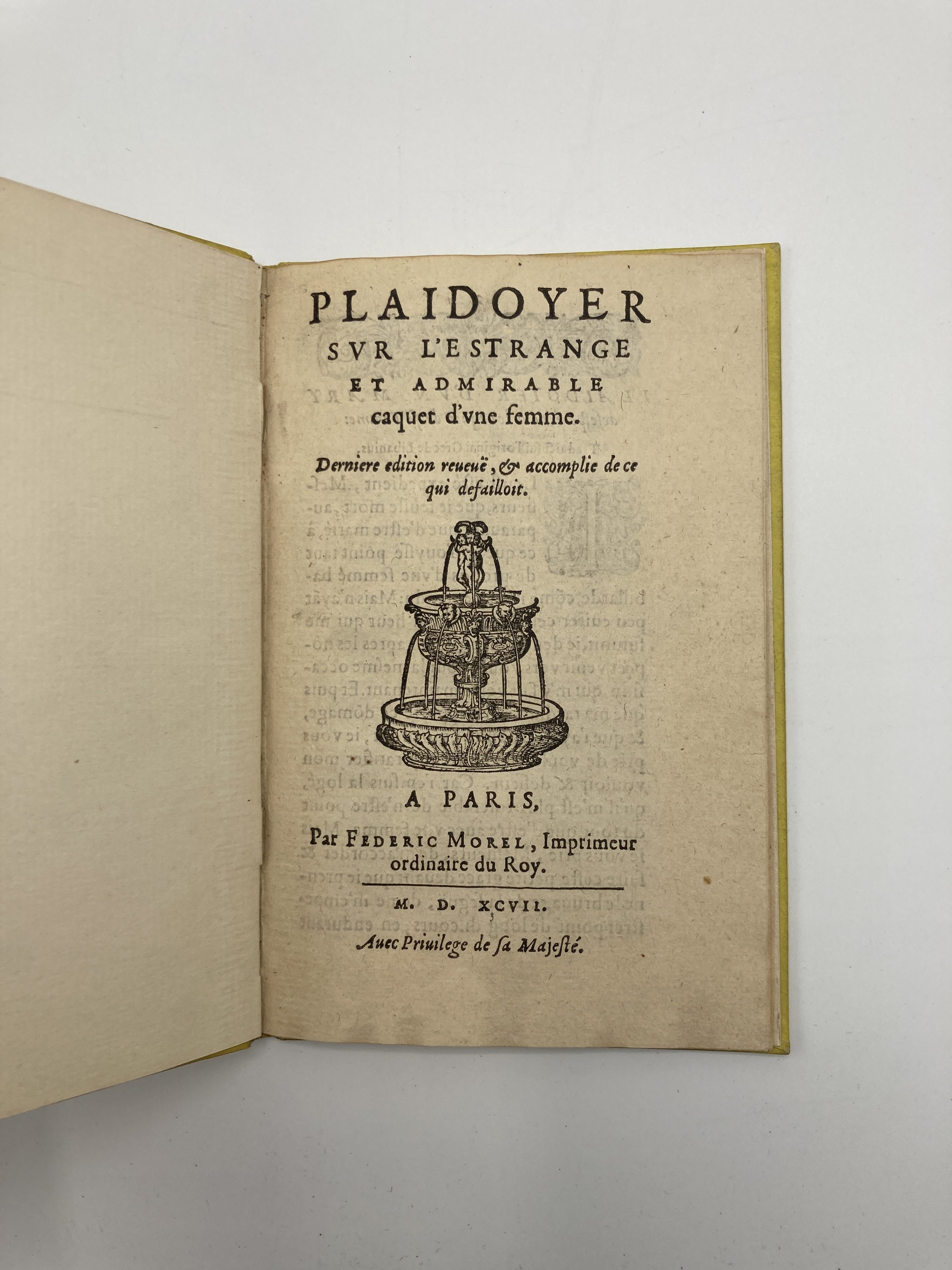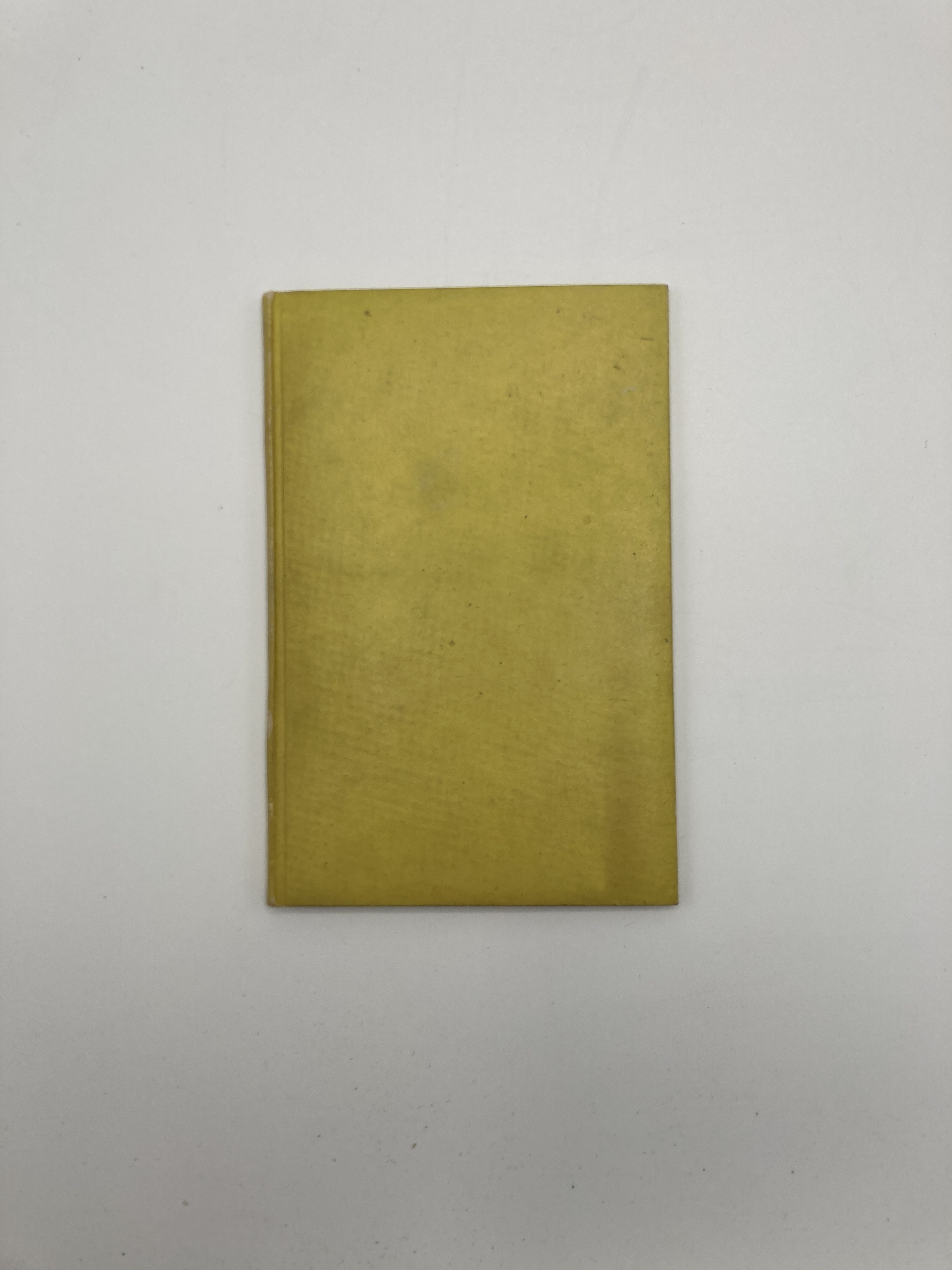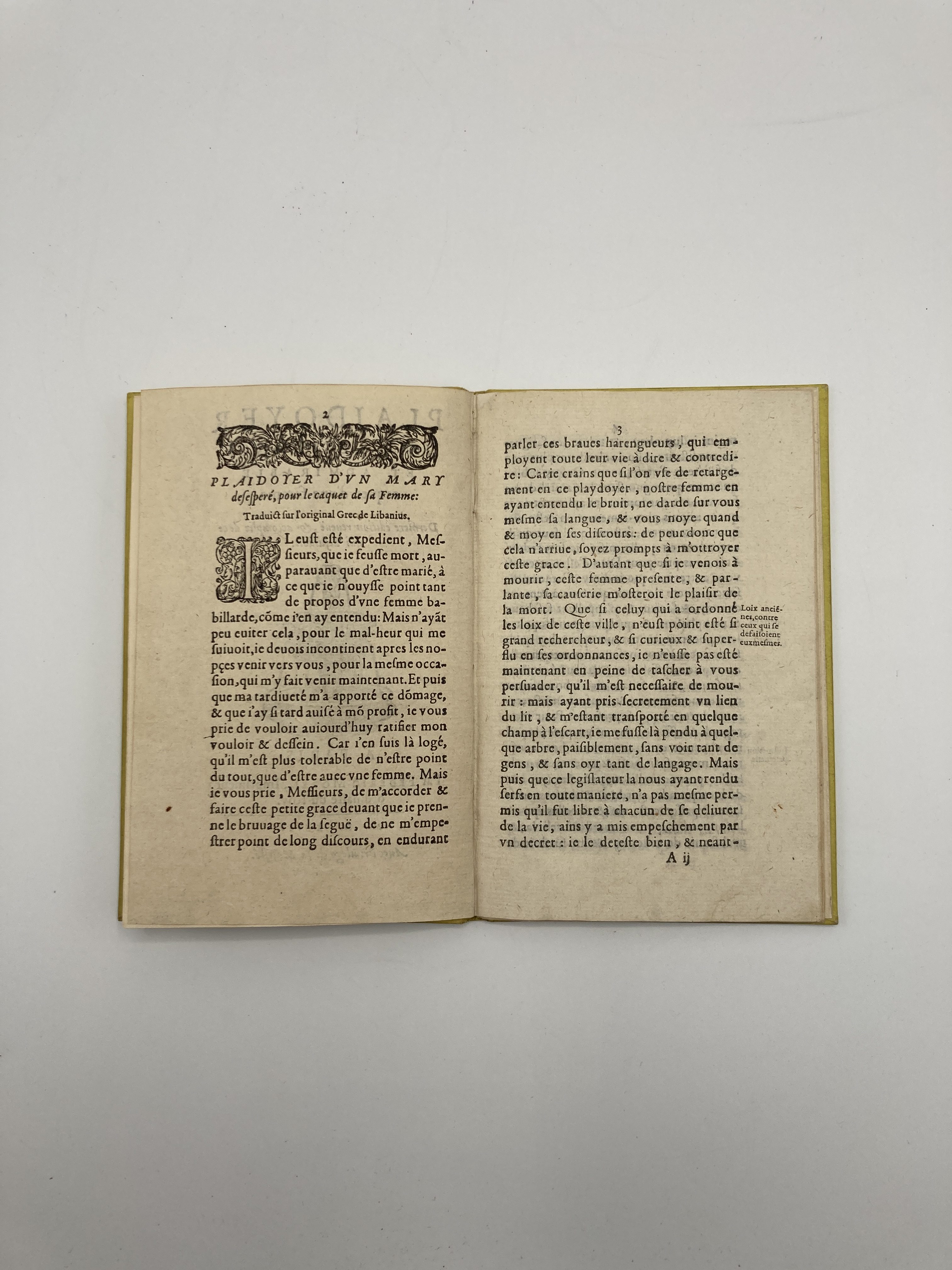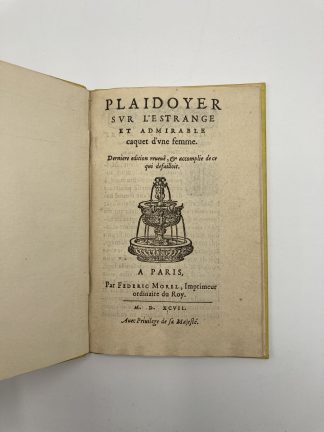LIBANIUS.
JONSON’S ‘DISAPPOINTED HUSBAND’
Plaidoyer sur l’estrange et admirable caquet d’une femme.
Paris, Fédéric Morel, 1597£1,750.00
8vo., pp. 24. A-C4. Roman letter. Morel’s charming woodcut fountain device on title, woodcut initials and head-pieces. A very good copy, crisp and clean in yellow paper boards circa C1900, title gilt on spine.
Fourth edition of the French translation by Fédéric Morel, as rare as the first published in 1592; USTC cites one copy only in institutional libraires. The work is a translation of Libianus’ humorous and satirical Declamation 26 which depicts the downfall of a man fooled into believing his bride to be is soft-spoken and self-effacing. After the wedding, his hopes of a gentle feminine silence are shattered; not only has his new wife loud but she is insatiably talkative, and he pleads desperately for legal permission to commit suicide. “Libanius (314-ca 393 A.D.), the last great pagan rhetorician and sophist, was born of a wealthy and distinguished Antioch family. In autumn 336 he began four years of somewhat reluctant study at Athens under the sophist, Diophantus. In 340 he traveled through Greece and the north. After an unsuccessful attempt in Constantinople he opened a school of rhetoric in 346 at Nikomedeia. Among his pupils was Celsus. The young Julian, in Nikomedeia at the time, dared not hear him, fearing the wrath of Constantine. After a brief and not entirely unsuccessful career in the civil service, Libanius returned to Antioch in 354 where he lived and taught until his death. An intimate already of Julian and his circle, he quickly became the most distinguished sophist of his day. Among his pupils were the Christians, John Chrysostom, to whom Libanius would have bequeathed his school “if the Christians had not won him” Theodore of Jolopsuestia, Basil the Great, Gregory Nazianzene, and perhaps Ammianus Marcellinus. Libanius was a voluminous writer and a number of his public orations have been preserved. Some, e.g., his Praise of Antioch, are of considerable historical value as well as literary merit.” Michael Crosby ‘On the Silence of Socrates’.
The work was influential both is France and in England “A good example is Declamation 26, the famous piece ‘On the talkative wife’ .. In 1501, Wigand von Salza produced a Latin translation reprinted in 1517. Such translations, in turn, inspired the famous seventeenth-century English dramatist Ben Jonson. In his Volpone, first produced in 1606, Lady Would-Be drives the title hero into a rage by her incessant talking – a clear but rather general and limited parallel with Libanius. Three years later, Jonson engaged much more thoroughly with Libanius’ piece: in his play Epicoene, or The Silent Woman, he virtually transforms Libanius’ declamation into a full-flegded dramatic plot. Indeed, the main male character of the play, who bears the telling name “Morose”, is a rich old man with a pathological aversion to all kinds of noise. When Morose plans to disinherit his nephew Dauphine, the latter sets in motion a counter-intrigue: he induces Morose to marry a woman, the “Epicoene” of the play’s title, who he thinks will be a demur and quiet wife. After the marriage, however, she turns out to be an all-day chattering and nagging domestic evil. .. the references to the morose man and his talkative wife of Libanius’ Declamation 26 are clear.” Lieve Van Hoof ‘Libanius A Critical Introduction’.
Such small and popular pamphlets have survived in a very small number, victim of their ephemeral nature. The printing of this work is interesting as the type size get progressively smaller as the book progresses, as the printer tried to limit the amount of paper used to three half sheet quires.
USTC 66822. (citing one copy only: Stadt- und Universitätsbibliothek Bern). Brunet IV, 682-683. Jean-Baptiste Monfalcon, Manuel du bibliophile et de l\\\\\\\'archéologue lyonnais. p. 157 Pettegree, Books published in the French language before 1601, 34540In stock





